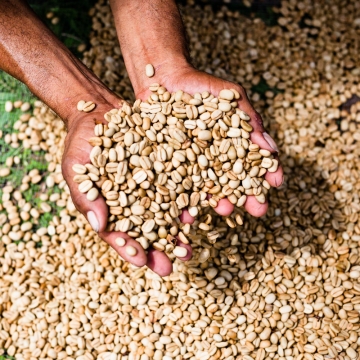
Civil servants get training on how to design green policy instruments
Officials from Uganda’s Ministries, Departments, and Agencies (MDAs) participate in a program that provides knowledge on how to design and enforce policy instruments to achieve a transition towards a…

“The concept of Just Transition needs to be considered in green transformation”
Kenya needs to adopt Just Transition in its low carbon development discussions as the application of this concept is still minimal or non-existent according to Prof. Richard Mulwa, Center Director at…

Conference: Green Growth & Sustainable Development in Vietnam
EfD-Vietnam co-organizes the virtual national conference on the "Green Growth & Sustainable Development in Vietnam" on 3rd of October 2021 with Nha Trang University, School of Economics at University…
AFAERE Webinar: Bioeconomic characterization of oil palm production and adoption among non-industrial producers in Cameroon: Some environmental and socio-ecological implications
Speaker: Ernest L. Molua Professor, Department of Agricultural Economics and Agribusiness, University of Buea, Cameroon Time: 16h00-18h00 CAT (GMT+2) Date: 20 September 2021 Zoom link: https://up-ac…
Cropping pattern adjustments may only offer limited benefits as an adaptation to climate change in India
Efd researcher Digvijay S.Negi with co-authors have used secondary data to study whether cropping patterns would be altered as a response to climate change in India. They found limited influence on
Factors affecting climate change coping strategies used by smallholder farmers under root crop farming systems in derived savannah ecology zone of Nigeria
The study analyzes factors affecting climate change coping strategies and constraints experienced by smallholder farmers under root crop (cassava and yam) farming systems in derived savannah ecological zone of Nigeria. The study used data collected from 400 farmers selected through a multistage random sampling technique from two States, Ebonyi and Enugu States, in the zone.
Equity and implications of response strategies on gender relations: Identifying ways of mainstreaming gender into response strategies in Southeast Nigeria
The interactions between prevailing gender gaps and climate variability and change (CVC) response strategies can intensify inequalities among farmers. Hence, this study examined implications of CVC response strategies on gender relations among farmers in Southeast Nigeria and ways of mainstreaming gender into the strategies.
Dr. Kanika Mahajan gets featured on the IEA website
Dr. Kanika Mahajan features as the first guest in the IEA website which details her research on wage inequality in India, the effects of agricultural mechanization on women, what motivated her to get…
Pagination
- Previous page
- Page 41
- Next page

